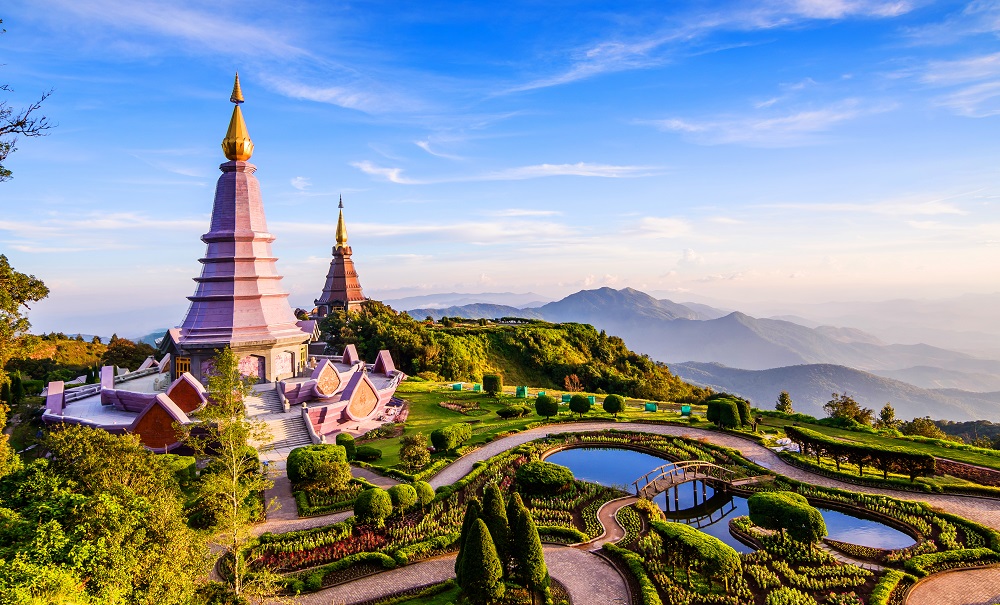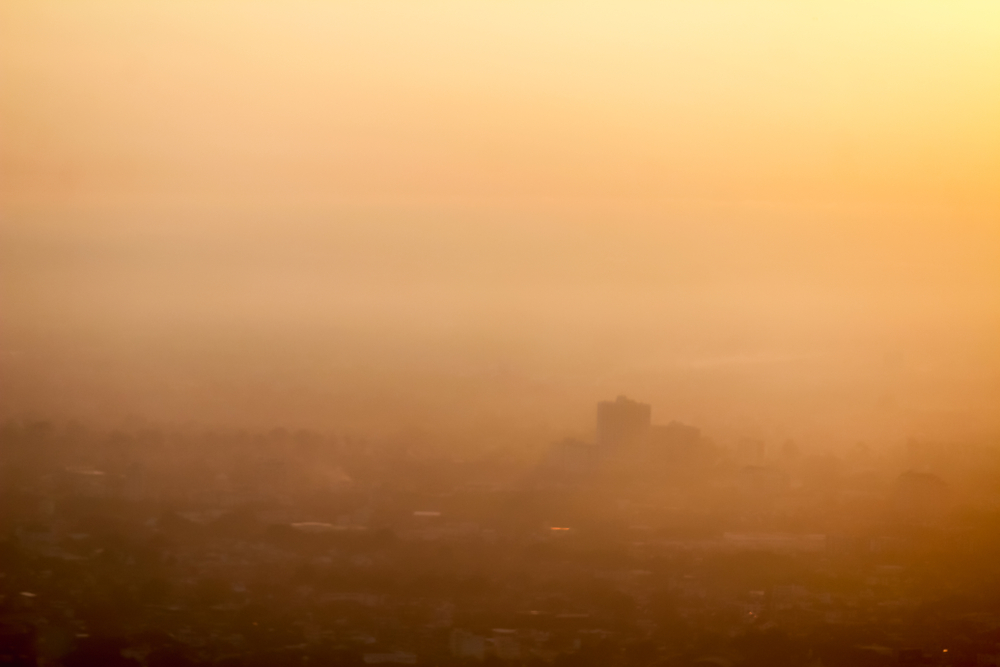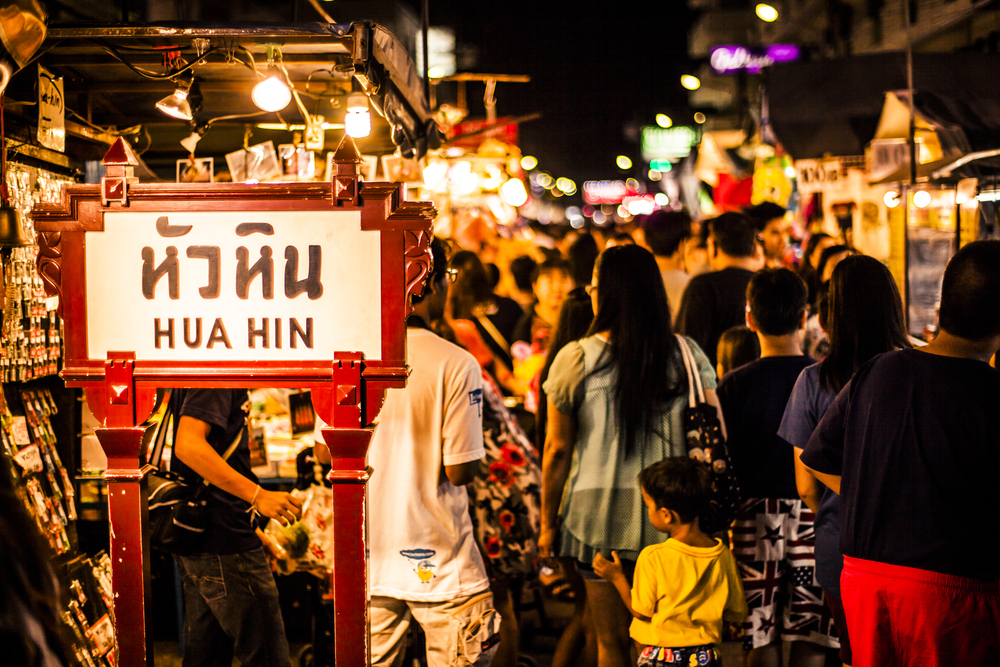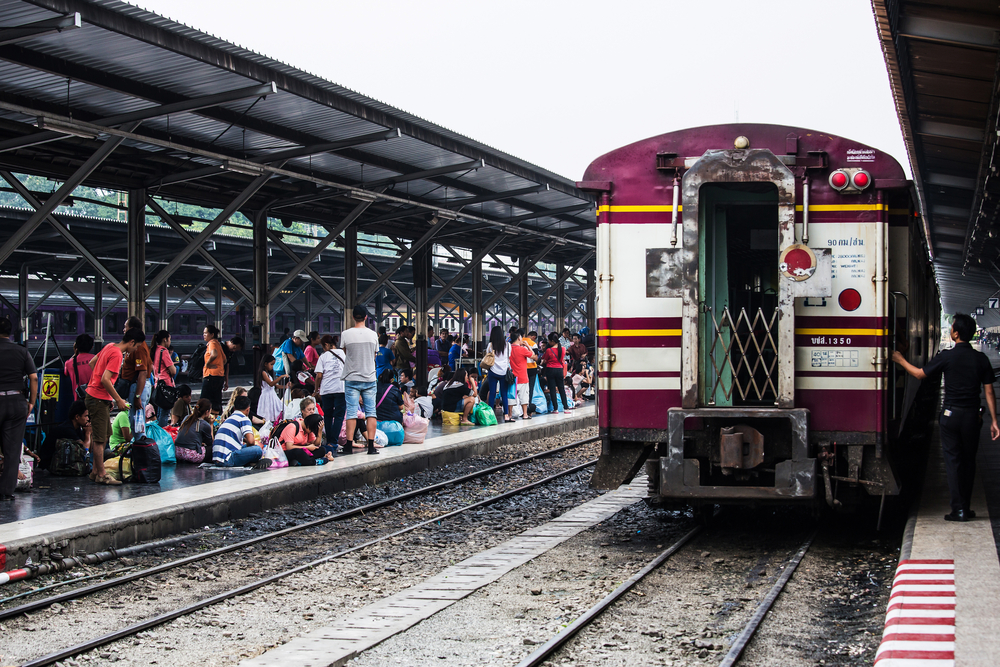Thailand’s secondary property markets don’t play second fiddle
Toxic smog may have cast a shadow on Chiang Mai’s desirability as an investment destination, but the northern capital and other secondary destinations in Thailand are beginning to steal some of the limelight from Bangkok

In April, pale clouds of grit and dust hung stubbornly over Thailand’s northern province of Chiang Mai, a toxic soup that turned mountain peaks and buildings into ghostly spectres.
The scene was the culmination of months of intensifying smog caused by crop burning and dry weather—a perennial problem that appeared particularly severe this year, as Chiang Mai was named one of the world’s most polluted cities in March.
One developer felt this was reason enough to scrap its plans for a project there. Sunshine International, a developer of retirement residences, cancelled a THB500 million (USD15.7 million) project—due to be constructed near the city centre—because of the air pollution.
“It’s a real shame,” related Andrew Stocks of Sunshine International to local media portal ThaiVisa.com. Stocks’ company had noticed a rise in the number of residents complaining about the smog and vowing to leave the city, prompting his company to focus on other retirement projects in Hua Hin and Phuket instead.
The negative attention around Chiang Mai (and, indeed, Bangkok where the poisonous air was also a major talking point) was bad news for Thailand. Following a series of tourism-related blunders last year, a wave of political fiascos preceding an inconclusive election, and ongoing low economic growth, the Kingdom has not had its problems to seek.
In the 15 years after the financial crises of 1997, only several thousand units were launched in Chiang Mai. By mid-last year, that number soared to 32,630 units, according to statistics from the Department of Land
Nevertheless, its blend of lifestyle perks and natural beauty works in its favour and real estate continues to respond well, with secondary markets such as Chiang Mai emerging as some of Thailand’s brightest spots.
In the 15 years after the financial crises of 1997, only several thousand units were launched in Chiang Mai. By mid-last year, that number soared to 32,630 units, according to statistics from the Department of Land.
The surge is due to several factors including anticipation of a high-speed train from Bangkok to Chiang Mai, which the government announced a few years ago. The transport plans would see Thailand’s old, inefficient single-track system replaced with high-tech trains modelled on Japan’s bullet trains, cutting the journey from around 13 to under four hours. The Chiang Mai route is planned for 2027, but according to a 2018 report by Colliers the planned link is already prompting developers to turn their eyes to locations along the route.
Chiang Mai’s economy has also gained vigour as people relocate from Bangkok for a slower pace of life and lower cost of living. Moreover, there are now more than 10 universities and some 100,000 students in the province.

Keith Humphreys, executive director of Chiang Mai-based property consultancy Prestige Property Services-Asia, says the city’s residential sector has received a boost from Thai and Chinese buyers. “Most are buying to live in the unit, although perhaps not for the whole year… Many come and go for three to four months at a time,” informs Humphreys.
Chiang Mai has long appealed to both expats and tourists alike for its cultural attractions and laidback vibe, unsullied by the over-development and commercialisation that arguably blights other parts of Thailand. This has led to a more sustainable real estate market: yields of between four to five percent on prime properties are attractive to investors while luxury properties are almost entirely absent. Says Humphreys, “Those very high-end projects which do exist in Chiang Mai have taken a long time to sell.”
More: 6 of the best places to live, eat, shop and party in Bangkok
On the city’s annual haze problem, Humphreys believes it has “no real impact” on the housing market. “It happens every year and is relatively short-term. It also coincides with a lot of residents leaving for the hottest months anyway.”
The upward trend in secondary markets is also being witnessed in Hua Hin, where the supply of condominium units is expected to increase by about 200 to 300 units—a good outcome for maintaining market balance, according to Knight Frank. The company found that between January and September 2018, there were 1,041 new condominium units added to the market, an increase of 164 percent from last year. The new supply is entirely in the heart of Hua Hin, away from the coastline where land has become increasingly expensive.

Pattaya’s condominium market is likewise showing promise, having rebounded last year with 4,800 new units—an increase of around 2,200 compared with 2017. More than 3,000 of these new units are in Jomtien, while Central Pattaya and Na Jomtien were the second and third most popular areas for developers. Such areas as South Pattaya and Pratamnuk had approximately 320 units of new supply or 13 percent of the entire new supply entering the market.
The allure of secondary markets comes as demand for condos remains flat in Bangkok where prices have risen by roughly 10 to 15 percent per year. “Although Thailand’s overall economic situation in 1Q-4Q 2018 showed positive trends, the demand in the condominium market hardly increased,” states Colliers.
In fact, the number of unsold units exceeded 45,000 by the end of last year—a major concern for developers. “Since all developers need to show gains every quarter, they cannot postpone project launches and have attempted to sell unsold units first. Some have sought to differentiate the project designs and concepts of their units, i.e., outstanding rooftop facilities or large-scale project facilities, to attract buyers,” the company says.
Upper areas of Sukhumvit—those further away from the city centre like On Nut and Phrakanong—are emerging as fertile ground for new developments as they give birth to thriving expat communities.

“Catering to a wide variety of cultural interests, Prakhanong has become one of the most up-and-coming, trendy districts of Bangkok. You’ll even find numerous businesses that accept cryptocurrency as a method of payment,” says Suchada Phoisaat, a resident of Prakhanong, who adds the area’s prosperity and growing diversity provided the right moment for her and her husband to launch their Russian restaurant, Moon Under Water, early this year—one among the many bars, restaurants, hotels and condos that mushroomed in the district.
In other parts of upper Sukhumvit, AP (Thailand) Public Company Limited is planning to launch five new condo projects—in On Nut, Asok-Ratchadaphisek, Ekkamai, Talat Phlu and Ratchathewi—worth a combined THB22.4 billion, up 31 percent from 2018. The first three launched in March with a presales target of 40 to 50 percent in the launch period.
Vittakarn Chandavimol, chief of corporate strategy and creation, says prices of new condo projects this year will range from THB86,000 to THB250,000 per square metre. “Despite a sluggish and difficult market, our new launches will cover all price ranges,” he says, adding, “This will be one of our key strategies to survive in a crisis.”
The Chinese continue to play a vital role in Thailand’s property, economy and tourism sectors. China buys more Thai exports than any other country, and is the fifth largest investor into Thailand. Last December also saw Thailand welcome its 10 millionth Chinese visitor. Chinese tourists now account for about one-third of all arrivals, and its foreign expatriates are only outnumbered by the Japanese.
“Chinese are the largest foreign property buyers in Thailand, accounting for 50 percent of all foreign buyer transactions,” says Carrie Law, CEO of Chinese property portal Juwai.com. “That compares to 24.4 percent in Australia, 25.1 percent in the USA, and 31.3 percent in New Zealand.”
While Chinese buyer enquiries for Thai property declined modestly in Q1 2019 from the last quarter of 2018, Law adds “they remain 331 percent higher than one year earlier. Thailand is now the most popular country for Chinese real estate buyers—before even Japan or the USA. Just two years ago, it was only the sixth most popular.”
At the time of writing, the official result of the election in March had yet to be announced. Despite weeks of political wrangling both before and after the vote, Law says the Chinese appear unfazed by the situation or potential outcome. “Buyers have seen the markets sail through Thai political pandemonium in the past and expect the same in 2019,” Law points out.
However, Chinese sentiment and arrival numbers dipped in the wake of a string of accidents and blunders by the government last year. Following a boat accident that claimed the lives of 47 Chinese nationals off the Thai resort island of Phuket and an incident in which an airport security guard slapped a Chinese tourist, numbers fell in the ensuing months. Prime Minister Prayut Chan-ocha was forced to act quickly and apologise over the incidents.
Thailand’s property markets, particularly those outside of Bangkok, derive significant strength from the tourism sector and have been energised by Chinese arrivals. Any more mishaps and further political uncertainty could undo the gains these markets have enjoyed. Furthermore, whoever comes to lead the country in the coming weeks—whether its Prayut or an opposition candidate—would be wise to keep Chiang Mai’s skies clear come the dry season, lest more developers pull the plug on their projects there.
This article originally appeared in Issue No. 154 of PropertyGuru Property Report Magazine
Recommended
Why everyone is moving to Selangor and Johor: Malaysia’s real estate comeback
Malaysia’s upturn in fortunes is especially prevalent in secondary destinations such as Selangor and Johor
Penang’s silicon boom: How the US-China tech war is supercharging local real estate
Penang’s booming semiconductor industry has created ripples within the local real estate sector
New leader, new opportunities: How Hun Manet is shaking up Cambodia’s real estate game
Hun Manet is overseeing decent economic growth and widening access to the country’s real estate market for foreigners
Singapore embraces inclusive housing reforms amid resilient demand
The Lion City’s regulatory strength continues to exert appeal for international investors








